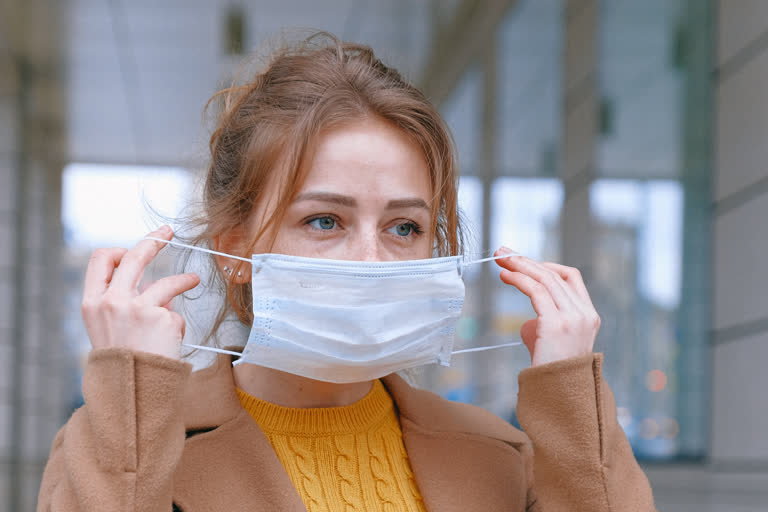London: Researchers investigating the safety of face masks to protect against COVID-19 say they can help to limit the spread of the coronavirus. In total seven types of face masks were put to the test by the University of Edinburgh.
These included surgical masks, respirators, lightweight and heavy-duty face shields, and handmade masks. Aside from those with a valve, all of the face coverings were found to reduce the forward distance travelled by an exhaled breath by at least 90 per cent.
Researcher Ignazio Maria Viola says: "What we can see is that face mask actually can really make a big difference in terms of how much the air that we exhale can actually travel in front of us. You can see a reduction of at least two thirds. You can probably argue that when you cough if you compare to some measurement taken in the literature, you actually have basically an order of magnitude instead of travelling metres away. It will only travel tens of centimetres, not even one metre."
When a person infected with COVID-19, coughs, they send up tiny droplets filled with the virus into the air.
Researchers say respirator masks, often used by medical staff, also offer a high level of protection.
Measurements were taken from people wearing different face coverings from people standing or lying down, as well as from a mannequin (dummy) connected to a cough-simulating machine.
A special type of imaging was used that enables scientists to detect the distance and direction travelled by air that is expelled when someone coughs or breathes heavily.
Read more: Russians discover drive-in cinemas amid lockdown
Full-face shields worn without a mask enabled 'a strong downward jet' to be released.
Respirator masks, commonly used by workers exposed to fine dust, were also found to offer protection but valves on these masks designed to make breathing easier 'could potentially allow infectious air to spread considerable distances in front'.
The researchers are waiting to discover whether their findings hope could lead to the UK government changing its position on face masks being worn in public instead of covering such as scarves and cloths.
Ministers in the UK haven't positively supported the public against wearing surgical masks, concerned demand would leave the National Health Service facing a shortage.
That hasn't stopped people choosing to wear them for protection."
One man on this busy street in London says: "I just wear it when I go to the supermarket and closed places."
Another says: "Just the protection, self-protection, I don't know how much protection it actually gives."
This better safe than sorry approach is widely held.
Also read: UK Minister resigns over PM aide's row
"Social distancing people don't really take notice of it so yes, You've got to be careful, you never know what's going to happen. So I just always wear it," says another passerby.
There are drawbacks to wearing the masks according to Maria Viola.
Although the surgical and handmade masks did limit the forward flow of an outward breath, they also generated "far-reaching leakage jets to the side, behind and above and below" - with "intense backward jets" generated whenever someone was coughing or breathing heavily.
He says: "So when you cough inside one of those masks, you might decrease the distance travelled by air in front of you, but you might actually eject air in different directions. For example backwards. So if there is a person behind you, the person behind you might actually receive much more of your exhaled air than the person in front of you if you are wearing a mask."
Only masks that form a tight seal with the face were found to prevent the escape of virus-laden fluid particles according to the researchers.
But they also warn people to be careful because making something that obstructs the mouth and nose may be dangerous.
It seems the answers people are looking for over mask safety are somewhat more complicated than the straight yes or no.
Also read: UK queen's message marks muted VE Day celebration
(With inputs from AP)



